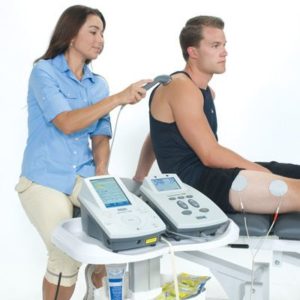An Unbiased View of "Breaking the Cycle: Can Cranial Electrotherapy Stimulation Provide Lasting Relief from Chronic Depression?"

Cranial Electrotherapy Stimulation (CES) is a non-invasive procedure that has got focus in current years for its capacity to minimize depressive signs and symptoms. With the frequency of clinical depression on the surge, analysts and health care experts are frequently seeking new and efficient procedure possibilities. In this post, we will certainly review the efficiency of CES in relieving oppressive signs and symptoms and look into the existing condition of study in this industry.
Clinical depression is a mental health and wellness disorder defined through consistent emotions of misery, loss of enthusiasm or delight in activities, modifications in appetite or sleeping patterns, and a lack of electricity. Link impacts thousands of people worldwide and can easily possess a extensive influence on an individual's quality of life. While there are a number of therapy choices offered for anxiety, consisting of medication and psychotherapy, not all people respond effectively to these typical technique.
Cranial Electrotherapy Stimulation entails the make use of of low-intensity electrical streams administered to the head by means of electrodes positioned on the scalp. The power stimulation is believed to modulate human brain task and neurotransmitter amounts, leading to improvements in mood and overall mental well-being. CES devices are commonly tiny and portable, allowing people to utilize them at property under clinical oversight.

A considerable physical body of study has been performed to examine the efficacy of CES in handling depression. One meta-analysis posted in 2014 examined 18 researches including a total of 1,502 participants with various styles of depression. The review found that CES was linked with a notable reduction in depressive indicators reviewed to sham treatments or no treatment at all.
On top of that, numerous randomized controlled trials have illustrated good end results relating to CES's performance as an adjunctive treatment for anxiety. For example, a research study published in the Journal of Clinical Psychiatry in 2016 revealed that individuals receiving both antidepressant drug and CES experienced higher enhancements matched up to those acquiring medicine alone.
In addition, investigation advises that CES might not merely be reliable for primary oppressive ailment but likewise for various other types of clinical depression such as treatment-resistant clinical depression and bipolar anxiety. A research released in the Journal of Nervous and Mental Disease in 2013 found that CES was linked along with considerable remodelings in both oppressive and manic signs and symptoms in individuals along with bipolar ailment.
Despite these promising lookings for, it is important to keep in mind that some research studies have disclosed blended results, and the overall premium of evidence is still limited. The devices through which CES exerts its therapeutic impacts are not fully recognized, and additional research is needed to expound its precise devices of action.
Furthermore, while CES is generally looked at secure when utilized as drove, there have been files of moderate side impacts such as skin layer irritability or lightheadedness. It is vital for individuals considering CES as a procedure option to speak with along with a medical care specialist and adhere to appropriate guidelines for consumption.
In final thought, Cranial Electrotherapy Stimulation shows assurance as a non-invasive procedure option for people having a hard time along with oppressive indicators. While research has demonstrated its efficiency in alleviating clinical depression, additional researches are warranted to establish its long-term efficiency and better understand its underlying mechanisms. As the field of mental health proceeds to develop, CES may deliver a twinkle of chance for those seeking alternate strategy to managing clinical depression.
